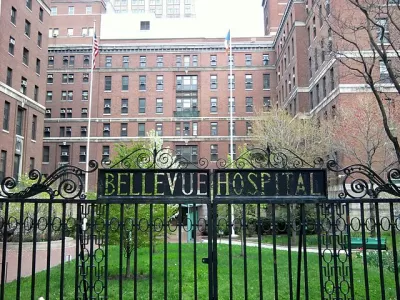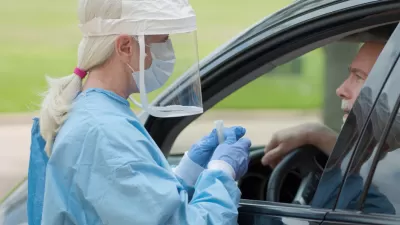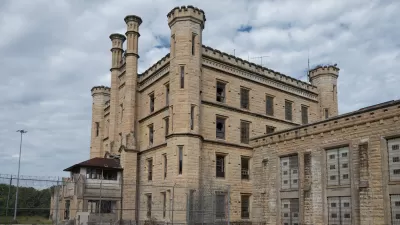For doctors trying to provide mental health care to people who are incarcerated or detained by the New York City Department of Corrections, city jails pose a challenge — and provide an opportunity.

The average jail or prison bears little resemblance to a therapist’s office, a community mental health clinic, an inpatient psychiatric facility, or any other therapeutic environment. Indeed, the restrictive and often chaotic jail or prison environment can exacerbate or even cause mental health problems for people inside. The use of solitary confinement is only the most extreme example. So how does a criminal justice system organized around security and punishment provide therapeutic care? Could there ever be room for privacy, tranquility, or other preconditions of emotional growth? As national problems of mental health care and criminal justice become more and more interwoven, these are not hypothetical questions.
Today, NYC Health and Hospitals operates one of the nation’s largest correctional health care services, including providing comprehensive mental health care to people in the criminal justice system from before they are arraigned to after their release from detention. NYC Health and Hospitals also administers inpatient psychiatric services at Bellevue and Elmhurst Hospitals and four borough court clinics. Dr. Elizabeth Ford is NYC Health and Hospitals’ Chief of Psychiatry for Correctional Health Services (CHS). She spent 15 years working in Bellevue Hospital’s inpatient psychiatric unit for men held at Rikers Island, beginning as a psychiatric intern and becoming director of the program. In 2014, satisfied with the changes to patient care implemented at the hospital, and concerned with the state of care in the jails themselves, Dr. Ford went to work at Rikers. From her office there, where the window is reinforced with double barbed wire and the sound of planes taking off from La Guardia Airport regularly intervenes, she talked to UO. Ford spoke about the challenges of treating mental health patients in a punitive environment, to the changes CHS has been bringing to spaces of confinement and treatment on Rikers Island, and the kind of mental health system that could serve New Yorkers better, both in and out of the criminal justice system.
FULL STORY: Where Care Meets Confinement

Maui's Vacation Rental Debate Turns Ugly
Verbal attacks, misinformation campaigns and fistfights plague a high-stakes debate to convert thousands of vacation rentals into long-term housing.

Planetizen Federal Action Tracker
A weekly monitor of how Trump’s orders and actions are impacting planners and planning in America.

In Urban Planning, AI Prompting Could be the New Design Thinking
Creativity has long been key to great urban design. What if we see AI as our new creative partner?

King County Supportive Housing Program Offers Hope for Unhoused Residents
The county is taking a ‘Housing First’ approach that prioritizes getting people into housing, then offering wraparound supportive services.

Researchers Use AI to Get Clearer Picture of US Housing
Analysts are using artificial intelligence to supercharge their research by allowing them to comb through data faster. Though these AI tools can be error prone, they save time and housing researchers are optimistic about the future.

Making Shared Micromobility More Inclusive
Cities and shared mobility system operators can do more to include people with disabilities in planning and operations, per a new report.
Urban Design for Planners 1: Software Tools
This six-course series explores essential urban design concepts using open source software and equips planners with the tools they need to participate fully in the urban design process.
Planning for Universal Design
Learn the tools for implementing Universal Design in planning regulations.
Appalachian Highlands Housing Partners
Gallatin County Department of Planning & Community Development
Heyer Gruel & Associates PA
Mpact (founded as Rail~Volution)
City of Camden Redevelopment Agency
City of Astoria
City of Portland
City of Laramie




























